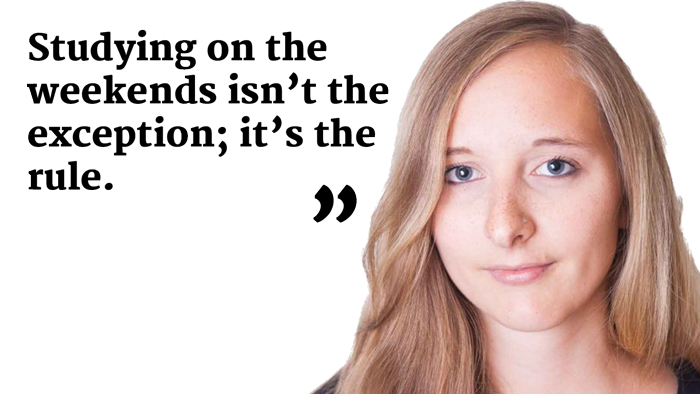There is a lot going on in the life of the average Lundian student and finding the right balance between work and pleasure can be difficult. Columnist Katherina Riesner contemplates this particular challenge.
Lectures, a side job, seminars, nations, exams, sittnings. You want to do them all, without sacrificing the work for fun, and much less the fun for work.
During my time in Lund, I have met a number of people who seem to be doing everything: volunteer work in a nation; active member of two or three student organizations, studying fulltime and yet they still find time to go out on weekends.
More than once have I asked myself how these people do it without finding an answer. Maybe they are exceptions though because it seems that lots of people are not that successful in splitting up their time between different obligations.
This is the experience I have made during my current degree, too. The workload buries you 24/7. There is always another article or textbook that you could read, a presentation that needs improvement, or a paper that cries for additional secondary literature.
Studying on the weekends isn’t the exception; it’s the rule. How else could anyone keep up with the workload?
Work-life balance is regularly discussed in the media – and rightly so. Long working hours and the constant need for email checks when you are supposed to be ‘off from work’ are cause for concern. After all, there is a reason ‘burnout’ is no longer a foreign concept to anyone.
But the debate commonly overlooks the student population because people in working life often ask themselves what students have to worry about; ‘they have so much free time’; ‘all they do is drink anyways’.
The fact that studying, especially in grad programs, requires a great deal of organization, time management and self-discipline is widely ignored. Putting aside your work and truly relaxing is challenging, almost impossible, if you are always carrying around the work on your laptop, or if the next research paper is constantly floating around your mind.
That, in addition to the pressure to ‘be social’, in whatever way that may be, can take a lot out of students, drain them.
It is important to find downtime, whether that means being by yourself or engaging in student activities without falling into a state of procrastination.
Although specialized institutions like the student health center have recognized these issues and try to treat them, I think we need more awareness for these challenges in the public. It is important that students, too, know that their situation is not hopeless should their study-life balance tip towards one extreme or the other.






